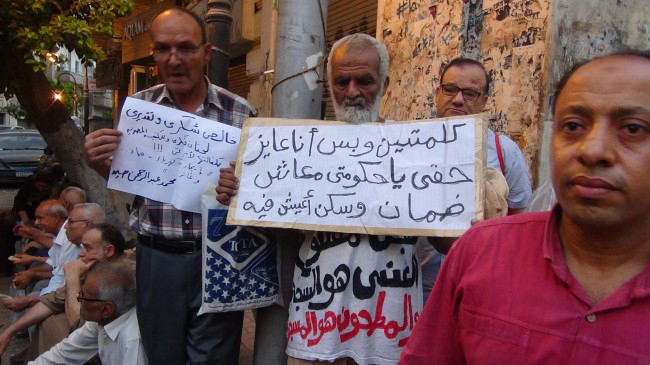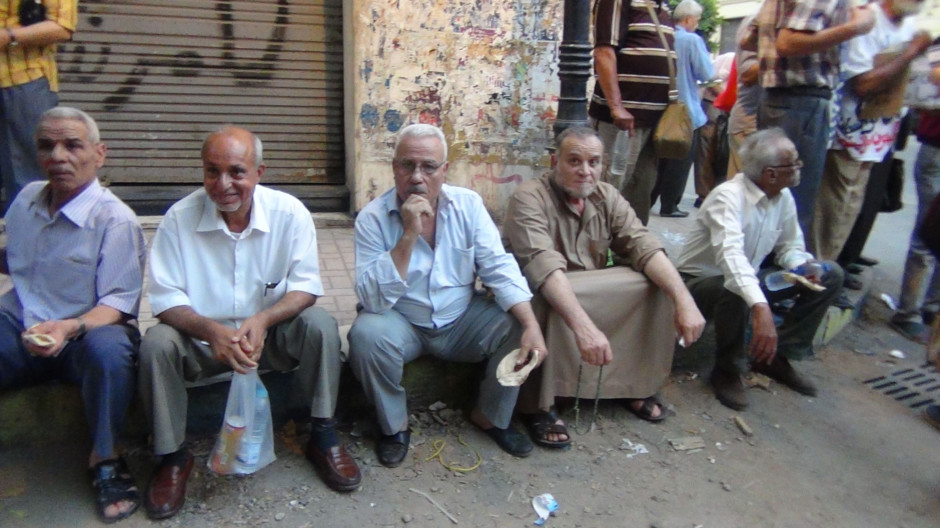
Cairo: Every night before going to bed, pensioner Hussain Gadallah has just one wish to make.
“I pray to God that neither I nor my wife or our unmarried daughter falls ill. If any of us became seriously ill, this would be like a disaster that befell my pension,” the 67-year-old man says.
“We cannot afford the soaring costs of living with my monthly pension of 900 pounds [Dh375] in normal circumstances. So how would life be like if illness knocked at our doors?” he adds sarcastically.
In recent months, import-dependent Egypt has seen a wave of hikes in prices of most goods. Traders have attributed the price rises to depreciation of the local pound against the dollar.
The country’s inflation hit 12.23 per cent in May, the highest in seven months, according to official figures.
The government has blamed the situation on “greedy” merchants and expanded a system offering food items at state subsidised prices.
“Life is not just about food. Prices of medicines as well as bills of electricity and water have also increased,” complains Gadallah.
“I am lucky that I’m living in a house that I own. This means I don’t have to pay a rent. But life is getting more expensive with each daybreak. The government must pay attention and (show) mercy to us. This should not be our status after spending the best of our years in the service of the country.”
Gadallah said he had worked for 35 years in a governmental department before reaching the retirement age seven years ago.
Egypt has an estimated nine million pensioners who have repeatedly held street protests in recent years, demanding higher pensions.
Dozens of angry pensioners rallied in central Cairo one evening last week that coincided with Ramadan when Muslims observe dawn-to-dusk fasting.
In a sign of protest, they broke their fast with plain bread. Egyptian Muslims usually break their fast in Ramadan with lavish meals.
The protesters demanded that the minimum pension should be raised to LE1,200 (Egyptian pound) rather than LE500 at present. Some of them have gone to court to request a ruling obliging the government to apply the LE1,200 threshold as it has done for state employees who are still in service.
Earlier this month, President Abdul Fattah Al Sissi ordered a 10 per cent hike in pensions, promising further increases when the country has enough resources.
Parliament has yet to ratify the 10 per cent rise in pension.
Egyptian economy has been in the doldrums as a result of the unrest that hit the country after the 2011 uprising.
Activists among pensioners have turned to parliament for backing.
“We ask members of parliament to use their authority and increase the latest pension rise from 10 per cent to 15 per cent,” Saeed Al Sabagh, the head of the Pensioners Syndicate, says. “This is necessary so that pensions will cope with inflation rate officially put at 12 per cent,” he added in a Facebook post.”
The government has reportedly increased pension allocations in the state budget for the new fiscal year, beginning in July, from LE43.5 billion to LE52 billion.
Some pensioners remain displeased, however.
“My family of four, including a university student, cannot face life with a pension of about 850 pounds,” says Waheed Mahmoud, aged 63. “The price of everything has gone high except the human being,” adds Mahmoud, who works as a taxi driver to complement his pension. “Without this [driving taxi], my pension would not suffice to buy plain bread for us.”













